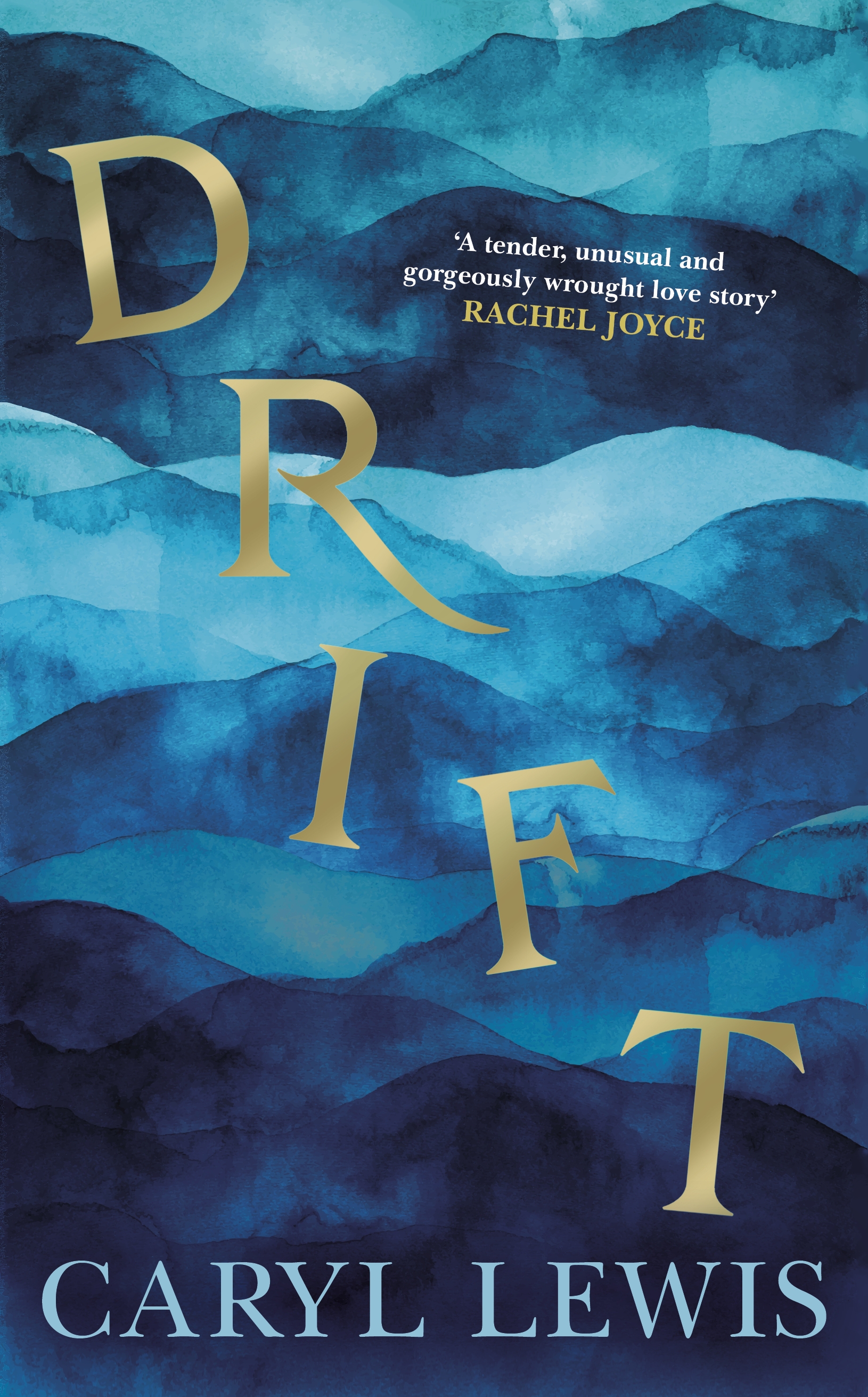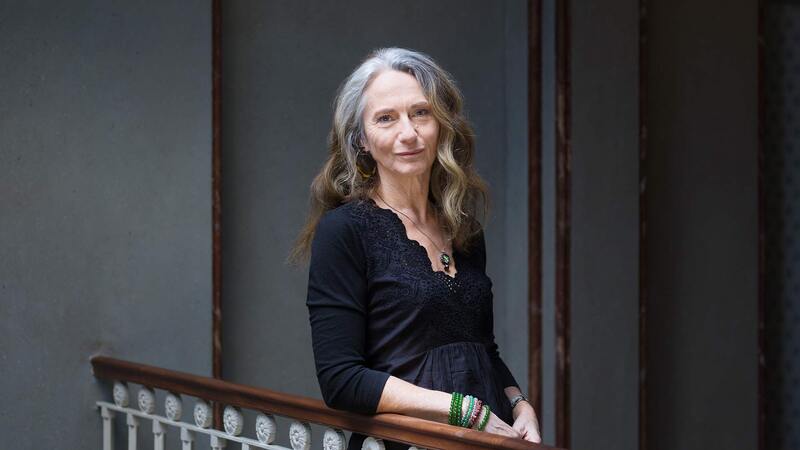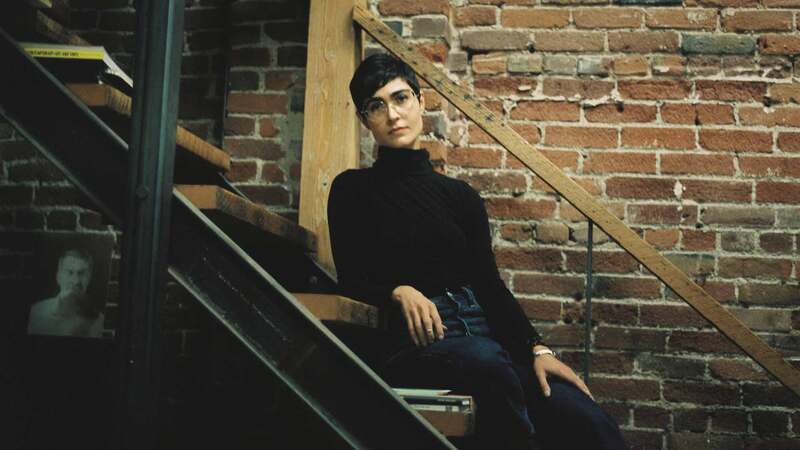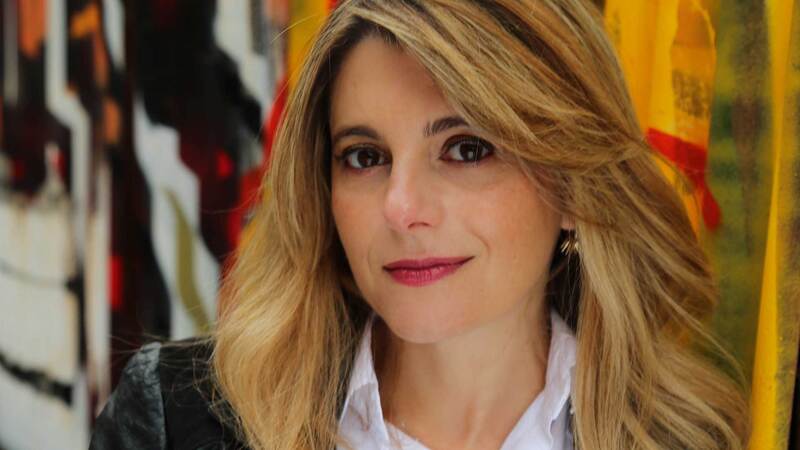You are viewing your 1 free article this month. Login to read more articles.
Caryl Lewis is set to release her first works written in English, including the lyrical Drift
 Caroline Sanderson
Caroline SandersonCaroline Sanderson is a non-fiction writer, editor and books journalist. Her books include a travel narrative, A Rambling Fancy: in the F ...more
This year, ‘legend of Welsh literature’ Caryl Lewis is set to release her first works written in English; she discusses her adult novel among the trio, the lyrical Drift.

Caroline Sanderson is a non-fiction writer, editor and books journalist. Her books include a travel narrative, A Rambling Fancy: in the F ...more
Author Caryl Lewis is publishing three titles this year. Her captivating adult novel, Drift, was published by Doubleday on 21st April, while her big-hearted middle-grade children’s novel, Seed, about a boy called Marty who is given a very special seed to plant by his grandad, is out next month from Macmillan Children’s Books. Then, from Puffin in September, comes The Boy Who Dreamed Dragons, a picture book illustrated by Carmen Saldana about “finding your people, staying true to yourself and being strong enough to love yourself as you are”. By the standards of the other UK nations, publishing three books in three different genres in a single year would be a noteworthy achievement. But for many Welsh writers, including the multi-award-winning Lewis, it’s not unusual. “I think you can live such a varied literary life,” she says.
It’s a complex thing, being bilingual. I was told as a child: ‘If you want to get on, lose the accent, lose the language, move to London
Her agent, Anwen Hooson, who describes Lewis as “a legend of Welsh literature”, confirms that it’s entirely normal to work across numerous genres in Wales. And indeed, in addition to being the author of 11 previous books for both children and adults, a double Wales Book of the Year Award winner (the only woman to have won it twice), and a two-time winner of the Tír na nÓg Award for the best children’s fiction, Lewis is also an accomplished playwright, and BBC/S4C screenwriter (her Scandi noir TV series “Hidden” has sold in 60 countries). What is different about her 2022 trio of books is that they are the first she has written in English.
When we speak via Zoom, Lewis, from her home near Aberystwyth in her native west Wales, tells me more about the origins of this admirable Welsh propensity to rove across genres. “I think it goes back to the Eisteddfod culture in which we are brought up. Every child has to compete annually in different disciplines, whether it be the prose competitions, or acting in a play, or competing in the clog dancing—like my daughter did last week. So we learn to have this openness, where all parts of culture are inextricably linked.”
A bigger stage
While she has carved out a successful career writing in Welsh, the language of her childhood, Lewis tells me that her decision to write in English for the first time was partly motivated by the desire to compete on a “bigger stage”. “I’ve established my voice in Wales as a Welsh writer, but when I turned 40, and with my children growing up, I began to think that perhaps I was hiding behind the clichés of Welsh writing a bit. So I started to wonder: could I compete on a bigger stage? It’s also about representation, because you can count the number of writers who have published in both Welsh and English on a few fingers. I felt that needed to be addressed.”
Written in English it may be, but Lewis’ deep love of Welsh culture and folklore—imbibed partly from her singer-songwriter mother, and the grandmothers with whom she spent a lot of time as a child—imbues her new adult novel, Drift. Set against the alluring coastal landscape of west Wales, it charts the love story between Nefyn, a woman with a visceral love of the sea, and Hamza, a Syrian map-maker with a troubled past, now incarcerated in a military base on the coast. A violent storm brings these two lost souls together, but other forces are bent on tearing them apart. Wonderfully atmospheric, it’s a novel about two people, two languages and two cultures drawn together against the odds; the beauty of difference and diversity; and the resilience of the human spirit.
One of the inspirations for Drift was an encounter with a Syrian refugee in a mainly Welsh-speaking village near where Lewis lives. “I heard this man speak with a distinctive accent and found out that he had brought his family to Wales from Aleppo. And he was speaking Welsh! What really struck me was that he didn’t have any preconceived ideas about learning a minority language, because he saw the cultural benefit, the way that the language would help connect him with his new environment. Over time, I encountered more and more Syrian refugees, chatting away in Welsh. There just seemed an incredible ease between the two cultures. So I started reading Syrian folklore and discovered that they too have an incredibly strong oral storytelling culture.
“Then I came across an old Syrian coin—and on it was a mermaid. That led to the discovery that the first mermaid stories came from Syria. This resonated so much with me because my grandmothers told me so many stories about mermaids on the Welsh coast. And so I thought: this is how I can bring the two cultures together to explore our common humanity.”
While dismissive of clichés which suggest you become a different person when writing in another language (“I am the same person and I have the same values”), Lewis does admit to having had a sense of trepidation about writing in English. “Having used my Welsh-language writing muscle for so long, I had to build up my courage.” What certainly seems to have translated is Lewis’ intensely lyrical style, derived partly from strict rhyming metres in Welsh poetic language, called cynghanedd, which all children learn at school and which focuses on the sounds produced within a line and the echoes they leave, rather than solely on the words themselves. “It’s a way of making the words sound as good on the ear as they do in terms of meaning,” explains Lewis. While writing in English, Lewis felt herself freed from these strictures to some degree. “But it’s never binary, and in Drift there’s a literal drifting in and out that is part of the process of being bilingual.”
Difference and diversity
Whether writing in Welsh or English, Lewis is fiercely proud of her cultural inheritance. While she went to university in England to study English Literature (“partly because I was obsessed with Victorian novelists”), she took a Welsh degree reading list with her and made her way through that as well. Soon after graduating, she returned to Wales and quickly wrote her first novel because she “couldn’t see the women that raised me in Welsh literature. And if they were there, they tended to be minor characters, and not from the area that I grew up in, speaking the dialect that I speak.”
Even though her name is set to be big in the rest of the UK, not least after landing a six-figure deal with Macmillan Children’s Books, Lewis remains proudly rooted in Wales. “It’s a complex thing, being bilingual. I was told as a child: ‘If you want to get on, lose the accent, lose the language, move to London. Don’t give your kids difficult names that people can’t pronounce.’” Now a mother of three, Lewis ignored every single bit of this advice.
She believes the synergies she has found between the Welsh and Syrian cultures, which inspired her to write
Drift, demonstrate the way in which smaller cultures are aware of the fragility and preciousness of our differences and our diversity. It’s indicative, she believes, that in the EU referendum, a high percentage of the Welsh-speaking areas of Wales voted to stay in Europe. “Having that second language makes you feel the need to look outwards and to identify with others. There are so many tropes around Wales and Welshness; that we’re somehow insular and closed in, and that the Welsh language is moribund. But I think it helps us open up.”










